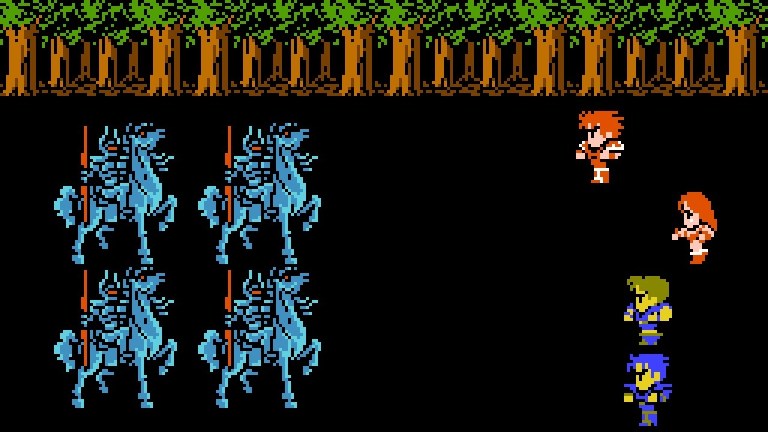Final Fantasy 2 Almost Made Even Bigger Changes to the Franchise
Final Fantasy 2 is already seen as one of the strangest titles in the franchise. As it turns out, the game was almost even more different than it already is.

The NES era was full of franchise experimentation. For instance, before Nintendo’s developers figured out what they wanted to do with the Legend of Zelda, they tried to turn it into a divisive action sidescroller. Final Fantasy underwent a similar rough patch with its second entry, and fans have long wondered why its developers made the big changes that they did. Well, we now not only have the full answer to that question but we learned a little more about the ways Final Fantasy 2 could have been an even bigger franchise black sheep.
Recently, Square Enix held an interview series hosted by announcer Chiaki Matsuzawa and attended by Final Fantasy alum Hironobu Sakaguchi, Kazuko Shibuya, and Yoshinori Kitase. The intent was to celebrate the 35th anniversary of Final Fantasy, the release of the Pixel Remaster, and Sakeguchi’s 60th birthday. This interview chronicled the origins of each Final Fantasy entry and also delved into some burning fan questions.
Naturally, some long-time franchise fans wanted to know why Final Fantasy 2 ultimately became something of a black sheep for the early era of the franchise. To be more specific, they wanted to know why the game completely altered the series’ character progression by allowing players to level up by repeating certain actions rather than simply acquiring experience points. For instance, casting a certain spell enough times will make you more proficient with that spell. On paper, it’s an early version of a system that we see in quite a few RPGs to this today.
Unfortunately, Final Fantasy 2‘s early take on that now-common system was…flawed. The game’s painfully slow leveling process not only required players to participate in quite a few random battles but often resort to desperate means to level up their most vital statistics. Most notably, players infamously resorted to damaging themselves and their allies in order to boost vital defensive stats rather than waiting for incoming enemy hits.
Final Fantasy 2′s notable departures from the previous game were surprising enough, but it was the sequel’s numerous design flaws that have long left fans wondering why the decision to try something so different was made in the first place. After all, Sakaguchi directed much of the early franchise, including that entry. Why did he change the leveling mechanic? It turns out it wasn’t really his idea.
During the interview, Sakaguchi recalled that after finishing the original Final Fantasy, he was so tired that he decided to hand the design reins to Akitoshi Kawazu. Kawazu had served as the first Final Fantasy’s game designer, and he was given even more creative freedom for the second game. He actually designed Final Fantasy 2’s battle systems and, more importantly, those character progression mechanics.
Of course, this change in Final Fantasy‘s character progression proved to be as controversial as it was short-lived, but it eventually found a home in Kawazu’s next franchise, Romancing SaGa. Granted, it helped that Kawazu ironed out the stat leveling system’s kinks for that series.
Kawazu might have had big ideas for Final Fantasy 2’s gameplay, but his initial plans for the story were even bigger. Initially, Kawazu wanted Final Fantasy 2 to serve as a bona fide sequel in both name and narrative. Specifically, he wanted the game to star the protagonist from the first Final Fantasy title. However, as development went on, that idea was eventually abandoned. According to Sakaguchi, Kawazu did at least come up with the name of Final Fantasy 2’s protagonist, Firion (Frioniel in Japanese).
While Kawazu’s gameplay changes didn’t stick around for long, imagine how much the Final Fantasy franchise could have changed had Final Fantasy 2‘s story picked up where its predecessor left off. Perhaps we would be enjoying a series that takes place in one expansive world instead of a multiverse that adds a new branch with every entry. If only we lived in a real multiverse where we could find out.
